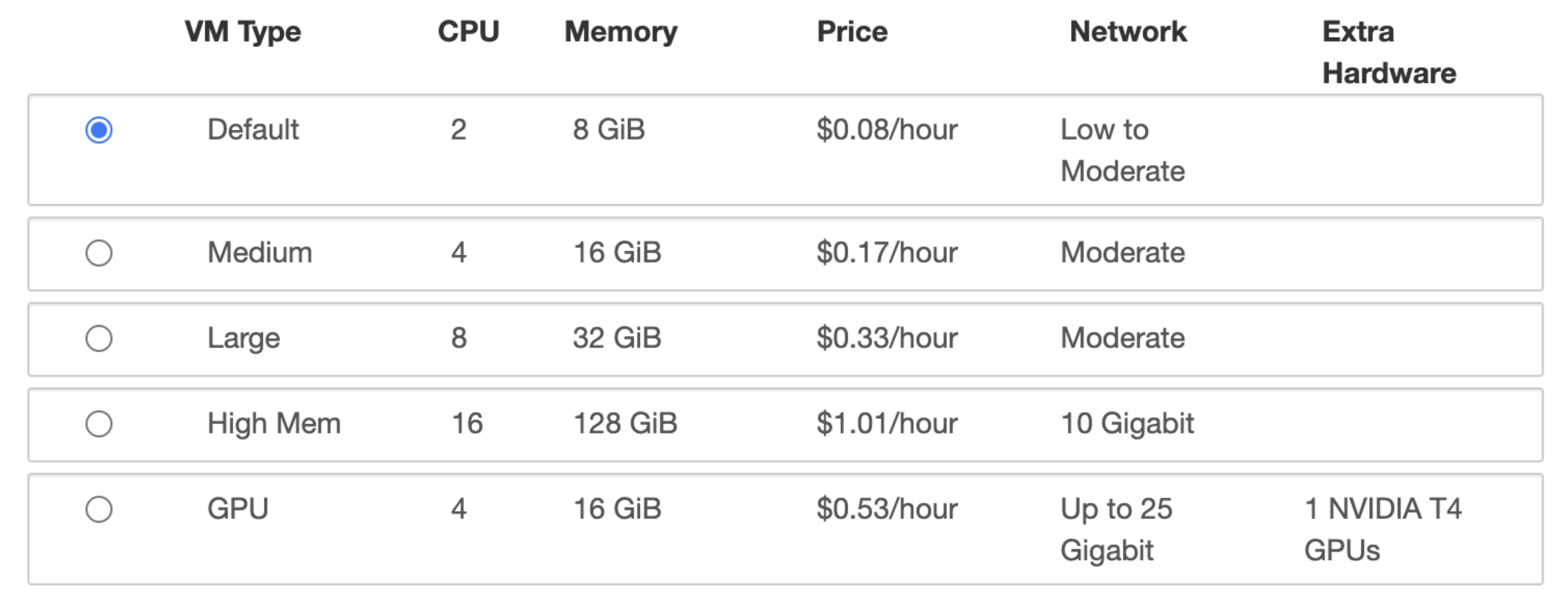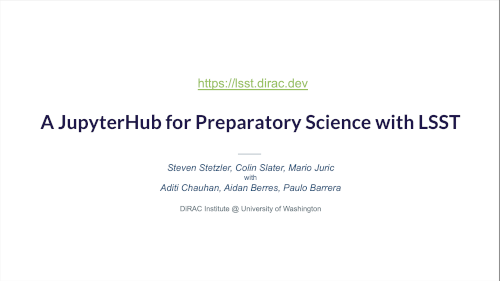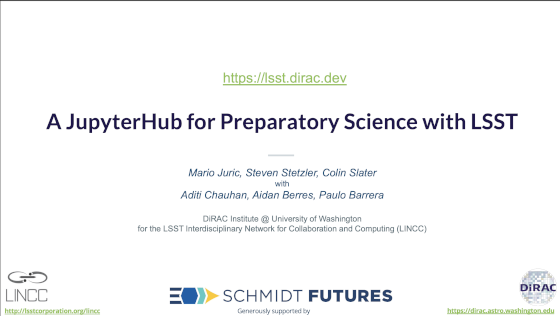Thanks to the LINCC Program for advanced computing services, hosted by the DiRAC Institute at the University of Washington, members of the Rubin Science Collaborations will have access to the following computational resources and support.
Cloud JupyterHub: All SMWLV, TVS, and Solar System collaboration members have free access to the cloud-based science platform provided by the LINCC Software Frameworks program at https://lsst.dirac.dev.
This system comes with:
- JupyterHub as the main user interface
- A remote Linux desktop, as an alternative interface
- Pre-installed anaconda Python distribution and software environments
- Pre-installed recent versions of the LSST Science Pipelines (both data management and MAF)
- Shared disk space with 100GB of disk space per project (with a possibility to work with us to add more or use cloud-native features such as object storage for larger datasets)
- A choice of machines on which to run your Jupyter notebook kernels, including GPU instances.

This system does not provide functionality to execute batch jobs (e.g., SLURM or similar). It is suitable for research projects that can be executed on a single large machine. Only the machines shown in the table above will be available (and one per person).
Each awarded project can assume they’ll be able to spend the equivalent of $3,000 in cloud credits (equal to 75,000 core-hours, or 125 days of 24/7 utilization of a high-memory instance), and up to 100GB of disk space. If the expected usage is at or below this level, there is no need to specifically justify or request these resources in a kickstarter project proposal. If more resources, or general-purpose (non-Jupyter) cloud access is required, it must be included in the proposed budget and justified.
We stress that the availability of these resources does not preclude kickstarter proposals to purchase computing equipment (laptops, servers, GPUs, etc.).
For questions about Cloud resources, feel free to contact Mario Juric at mjuric@astro.washington.edu. Alternatively, ask in the #hsf-lsst-sci-prep channel on the LSSTC Slack where one of our support staff will try to help.
An overview of these facilities was also presented during the recent Kickstarter Grants Workshop.
| Slides for Mario's LINCC program talk |  |
| Slides for Mario's LINCC demonstration |  |
| Recording of Mario's LINCC demonstration |
